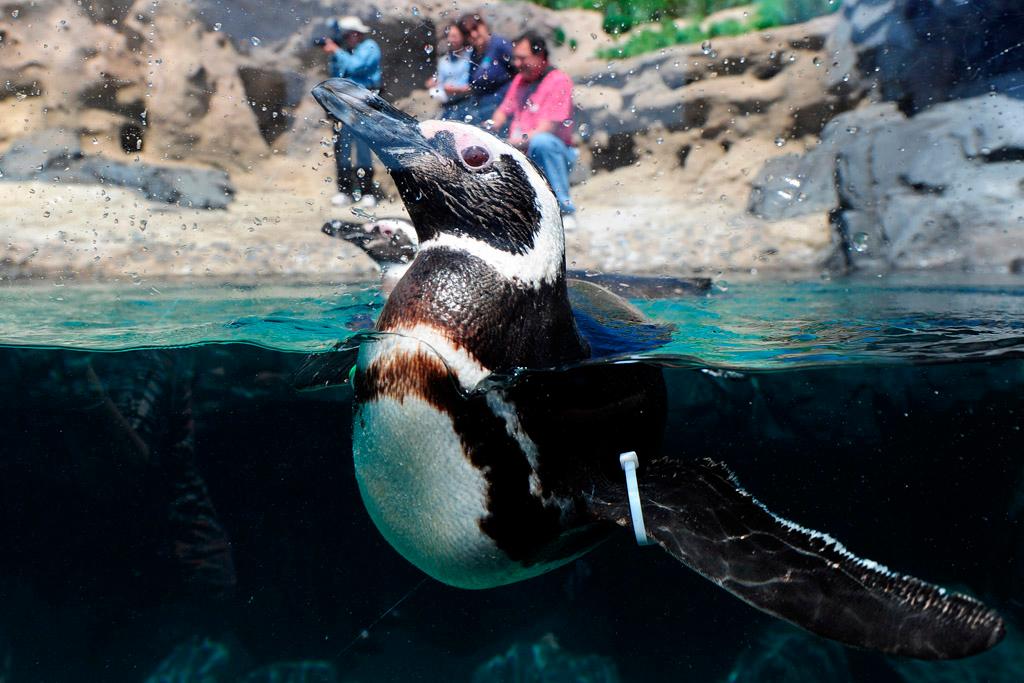500 dead penguins wash up in Brazil
A rescued Magellanic Penguin from South America swims in the water at the new June Keys Penguin Habitat at the Aquarium of the Pacific in Long Beach, California, on May 16, 2012. Penguins have existed on our planet for more than 50 million years but current environmental issues such as climate change and overfishing threaten their survival.
Veterinarians are investigating after 512 dead penguins washed up on Brazilian beaches in the state of Rio Grande do Sul on Friday.
The animals landed near the towns of Tramandai and Cidreira, Agence France-Presse reported.
The Center of Coastal and Marine Studies (Ceclimar) took tissue samples to Porto Alegre University in an attempt to determine cause of death, AFP said.
It may take as long as 30 days for any answers.
About a week ago, BBC reported penguins near Rio became a tourist attraction after surfacing near the tropical beaches there.
Rescuers pulled the sickly birds from the water and nursed them back to health.
More from GlobalPost: 27 dead penguins found on Australia’s Philip Island
Jeferson Pires, who is helping rehabilitate the birds, said they have stomach ulcers from going long periods without food.
It’s common for younger birds to lose their ways searching for food, BBC said.
The birds migrate annually from Argentina to Brazil, but ocean currents can carry them off course.
“After rehab, we are working on the logistics plan to take them back to a rehab center … in order to release these animals afterwards back in nature, in their natural habitat,” Silvia Torres, an animal welfare worker, told BBC.
This week’s incident is different, however, because the penguins appeared healthy, well fed and free of oil, The Associated Press said.
The Magellenic penguins live near southern Argentina and Chile.
They migrate from March to September to Sao Paulo.
More from GlobalPost: Emperor Penguins threatened by climate change (VIDEO)
The story you just read is available for free because thousands of listeners and readers like you generously support our nonprofit newsroom. Every day, reporters and producers at The World are hard at work bringing you human-centered news from across the globe. But we can’t do it without you: We need your support to ensure we can continue this work for another year.
Make a gift today, and you’ll get us one step closer to our goal of raising $25,000 by June 14. We need your help now more than ever!
